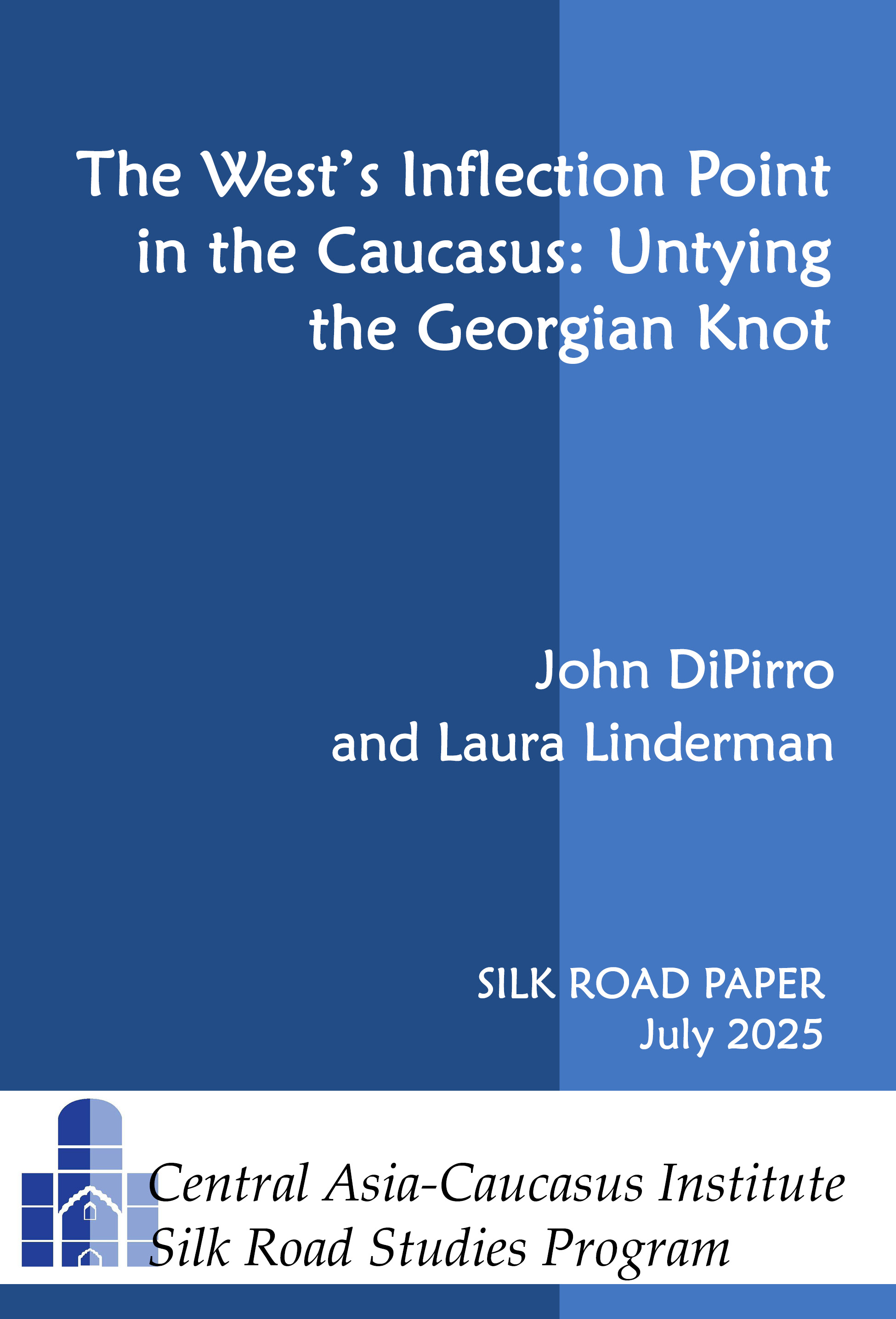By John DiPirro and Laura Linderman
Central Asia-Caucasus Institute & Silk Road Studies Program
Silk Road Paper
July 2025
Click Here To Download The West's Inflection Point in the Caucasus: Untying the Georgian Knot.
Executive Summary:
Since the summer of 2019, Georgia has cycled through periods of crisis and partial recovery, with the increasingly kleptocratic and authoritarian Georgian Dream (GD) government developing sophisticated methods to control public discourse and opinion. The fundamental question that Western policymakers can no longer avoid is: What is more important—a democratic Georgia or a cooperative, friendly Georgia? For years, these aspirations were aligned, but today they have diverged into mutually exclusive policy pathways, each carrying profound implications for regional stability and the credibility of Western engagement.
While many Western analysts point to Georgian Dream and its founder, billionaire Bidzina Ivanishvili, as the primary drivers of democratic decline, this view oversimplifies the situation. A fuller understanding must also consider the opposition's failure to offer credible alternatives, the legacy of Mikheil Saakashvili’s United National Movement (UNM) party, and inconsistent Western engagement, all contributing to instability and strategic ambiguity.
In recent discussions with regional experts, civil society leaders and opposition figures, a common critique emerged: the absence of a coherent, responsive, and consistently updated Western policy toward Georgia. Shifting Western priorities have undermined long-term strategic alignment, especially given evolving global dynamics and the growing influence of powers like Russia and China. Given global shifts—including a more transactional U.S. foreign policy under the Trump Administration and Europe's growing focus on defense infrastructure—will the West remain committed to Georgia, or has "Georgia fatigue" taken hold?
This analysis examines the history and impact of Western support for Georgia, particularly in economic development, energy cooperation, and democratic reform. While Georgians are ultimately responsible for their national trajectory, the West must reckon with its strategic missteps that have shaped Georgia's current geopolitical position. Western policymakers must recalibrate their approach for an evolving international order and clearly articulate their desired relationship with Georgia. This recalibration requires acknowledging past errors and choosing whether to remedy them or pursue a pragmatic reset in relations.

